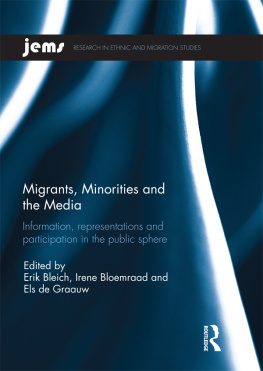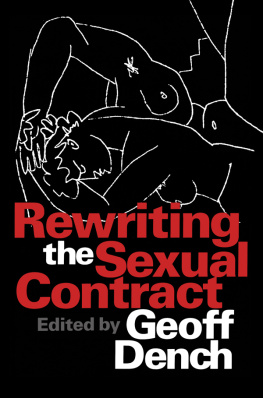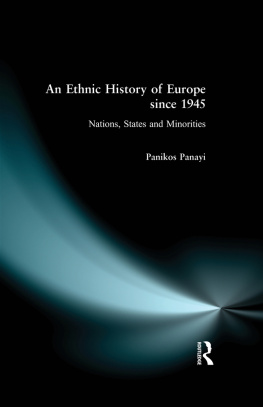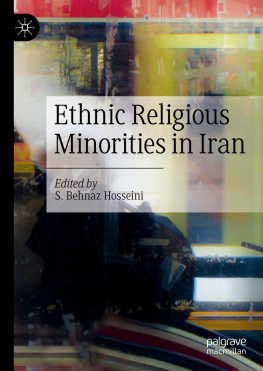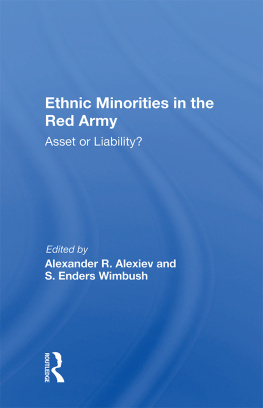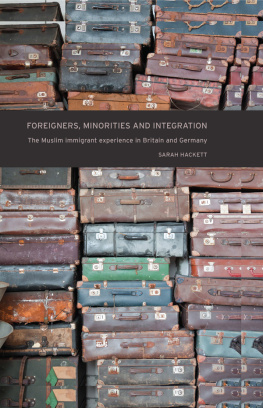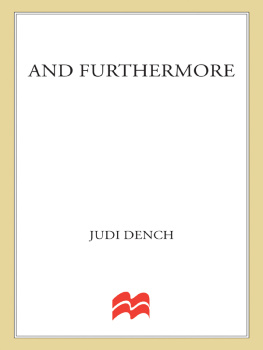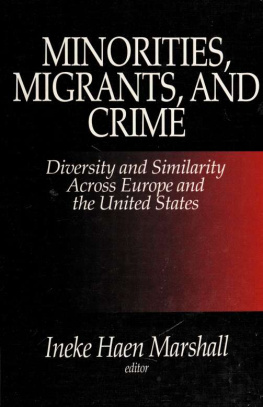Originally published in 1986 by Routledge & Kegan Paul Inc.
Published 2003 by Transaction Publishers
Published 2017 by Routledge
2 Park Square, Milton Park, Abingdon, Oxon OX14 4RN
711 Third Avenue, New York, NY 10017, USA
Routledge is an imprint of the Taylor & Francis Group, an informa business
New material this edition copyright 2003 by Taylor & Francis.
All rights reserved. No part of this book may be reprinted or reproduced or utilised in any form or by any electronic, mechanical, or other means, now known or hereafter invented, including photocopying and recording, or in any information storage or retrieval system, without permission in writing from the publishers.
Notice:
Product or corporate names may be trademarks or registered trademarks, and are used only for identification and explanation without intent to infringe.
Library of Congress Catalog Number: 2002070335
Library of Congress Cataloging-in-Publication Data
Dench, Geoff.
Minorites in the open society / Geoff Dench.
p. cm.
Originally published: London ; New York : Routledge & Kegan Paul, 1986, in series:
Reports of the Institute of Community Studies. With new introd.
Includes bibliographical references and index.
ISBN 0-7658-0979-6 (pbk.: alk. paper)
1. MinoritiesCivil rights. 2. Ethnic groupsCivil rights. 3-Ethnicity.
4. Ethnic relations. I. Title.
JF1061 .D46 2002
323.1dc21
2002070335
ISBN 13: 978-0-7658-0979-7 (pbk)
INTRODUCTION TO THE
TRANSACTION EDITION
MINORITIES AND MERITOCRACY
IN BRITAIN
I welcome the new edition of Minorities in the Open Society as this gives me a chance to apply the books argument and add detail to it in light of events since its first publication. This is particularly pertinent in Britain. The further rise there of meritocracy, that ostensibly most open and inclusive of social regimes, in practice so divisive, has proceeded relentlessly whatever the political colour of the party in power. This may well be an aggravating tension between commu-nalist and individualist elements in British society, and feeding a loss of confidence in the political class and system.
When I started writing the original edition, nearly twenty years ago, I was consciously reacting against what I felt to be an over-optimistic (and self-serving) idealism in current British commentaries on ethnicity and race. My main point was cautionary. At the time, the new meritocratic elite in Britain was busily and confidently consolidating its position in the professions, civil service and public administration. This position was becoming so powerful that even a leader as charismatic and determined as Margaret Thatcher, with a massive democratic mandate, found her hands tied on many social issues. The new elite had been born out of a strong postwar belief in the capacity of state-sponsored individual rights and opportunities to sweep away traditional class inequality and injustice in British society. It now declared its own ability, and natural destiny, to prevent new cultural and racial divisions introduced by immigration from limiting the full and equal participation of British citizens in all areas of public life. The mood it conjured up was positively messianic. Multicultural British society, by combining the experience gathered while nursing the mother of parliaments and administering a great empire now reconstructed as a consensual family of nations in the Commonwealth -was going to teach the rest of the world how best to achieve social justice, cohesion and stability.
My aim in this book first time around was to warn against too-ready acceptance of this immodest claim, by emphasising that such proposals have a good deal to do with the modern elites need to display progressive credentials on the world stage. The imperatives of international statecraft are fundamental. Since then the implications of this governing strategy have unfolded further. It has become clearer to me how pursuing legitimacy through championing the cause of minorities also helps a ruling class to wrong-foot domestic opponents at the same time. The idea of a society open to all talents is fraught with difficulties. Tremendous strains are created by the decision to use state power to promote it. The resulting contradictions and class conflicts can probably be managed much more easily where there are groups whose membership of the nation is ambiguous, who are very dependent on elite sponsorship, and whose presence flushes out ethnocentric responses among the masses which can then be held against them. A society tied to the notion of meritocracy may therefore have a particular need for minorities. It helps meritocrats to be able to brand opponents as racists or bigots of some other kind. But the recent drift of events in Britain shows, I suspect, that if this style of governance is used too enthusiastically it may only work for a while, before producing cynicism and alienation among minorities themselves on top of the long-running conflicts with poor white members of the majority.
Over the last several years I have been involved in a study tracing changes in community structure and relations since the end of the Second World War in the East End of London. It is my participation in this study, I think, that has drawn my attention to the very close connections between issues of class, immigration and minorities, and the emergence of the new meritocratic regime in Britain. The research started by looking fairly generally at the transformation of Bethnal Green during the second half of the twentieth century since the opening there of the Institute of Community Studies and publication of its first local report, Family and Kinship in East London. After some preliminary investigation, the study became focused mainly around the growth of the Bangladeshi community. This community had not existed in the 1950s or early 1960s beyond a handful of transient seamen. But by the mid-1990s it made up a quarter of the resident population, and well over half of the schoolchildren in the area.
Although the heaviest Bangladeshi migration and settlement in the East End occurred in the late 1970s and through the 1980s, we soon found that we needed to go back to the war years in order to understand the responses to it of the older white residents still living in the borough. This, in turn, has influenced our view of wider national changes. It has become increasingly evident that the events, which have played themselves out in Bethnal Green during this period, represent in a microcosm some key features of the postwar modernisation of Britain, and the emergence of the new ruling class. This national history is not merely reflected in East End events. Some key aspects of it actually happened in the East End itself an area that has long been a central stage on which relations between British social classes have been played out. It is no accident that the leading TV soap opera in contemporary Britain, celebrating working-class family and community life, and commanding the largest audiences in the country, is set in this area and is called EastEnders.
THE LESSON OF EAST LONDON
Since the Middle Ages this corner of London has been an important focus and symbol for the outcast and dispossessed in British society. Haunt of Jack the Ripper, and birthplace of the Kray Brothers, the East End has a long history of exclusion from respectable society, which is intimately tied up with the emergence of capitalism. The western flank of the area comprises the neighbouring districts of Bethnal Green and Stepney. These lie adjacent to the City of London, and are still linked to it by the medieval entrances of (respectively) Bishopsgate and Aldgate. Over the last six or seven hundred years the development of the City and East End have unfolded in parallel, involving progressive and in many ways symbiotic polarisation. As the City evolved into the centre of capitalism, it periodically exported its more polluting economic activities to just outside the city walls, where their benefits were still easily available but did not offend the dignity of the City itself. Starting in the thirteenth century with the movement of the leather and skin trades (which are to this day centred on Bethnal Green), followed by clothing and furniture trades generally, then shipping and the distribution of goods, those activities involving material goods and services became excluded from the City. This concentrated its own activity around high status financial activities dealing only with the abstract essence of trading value which allowed the maximising of wealth and power. Together the City and the East End became the hub of the British imperial trading system. Commodities were bought and sold in the City, and handled through the docks and warehouses of East London.



